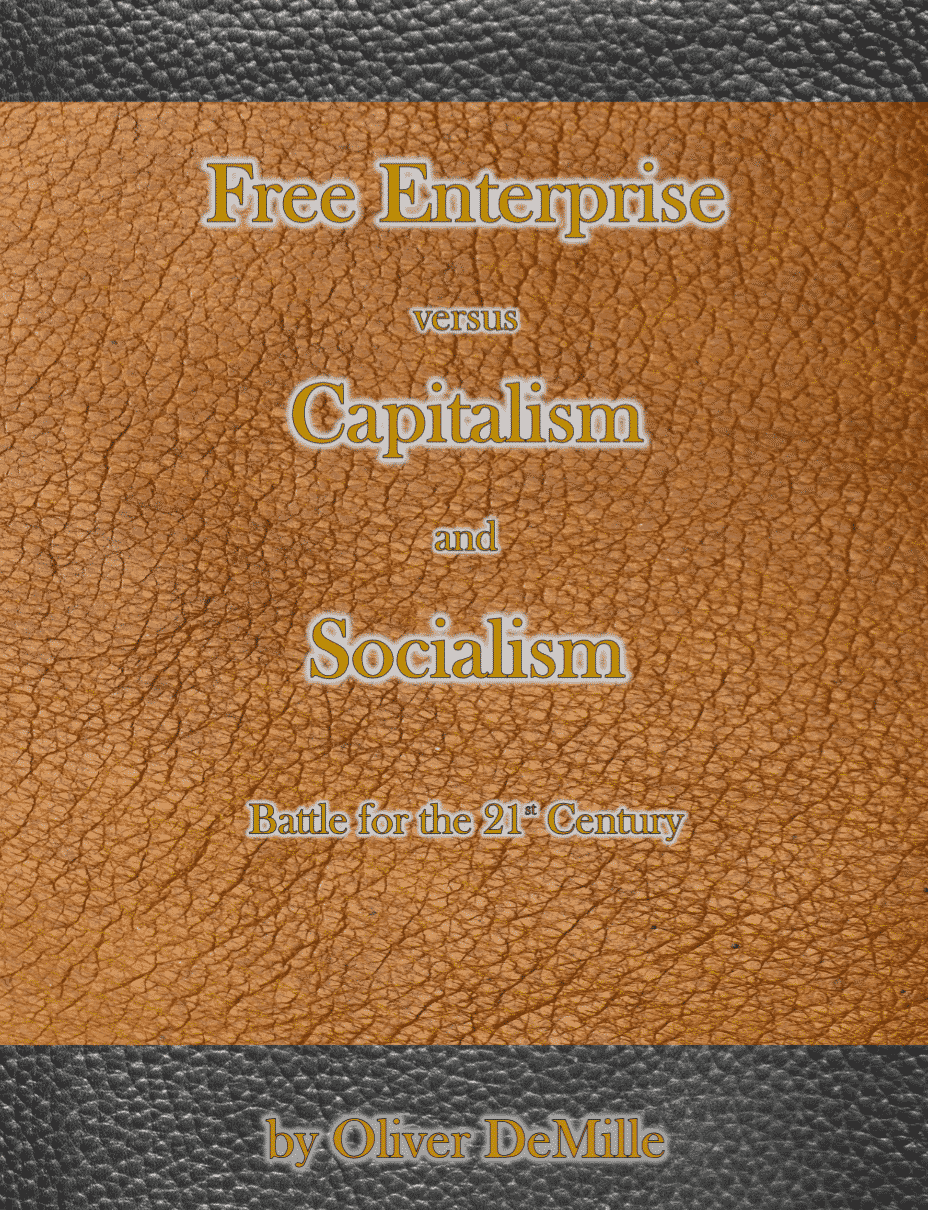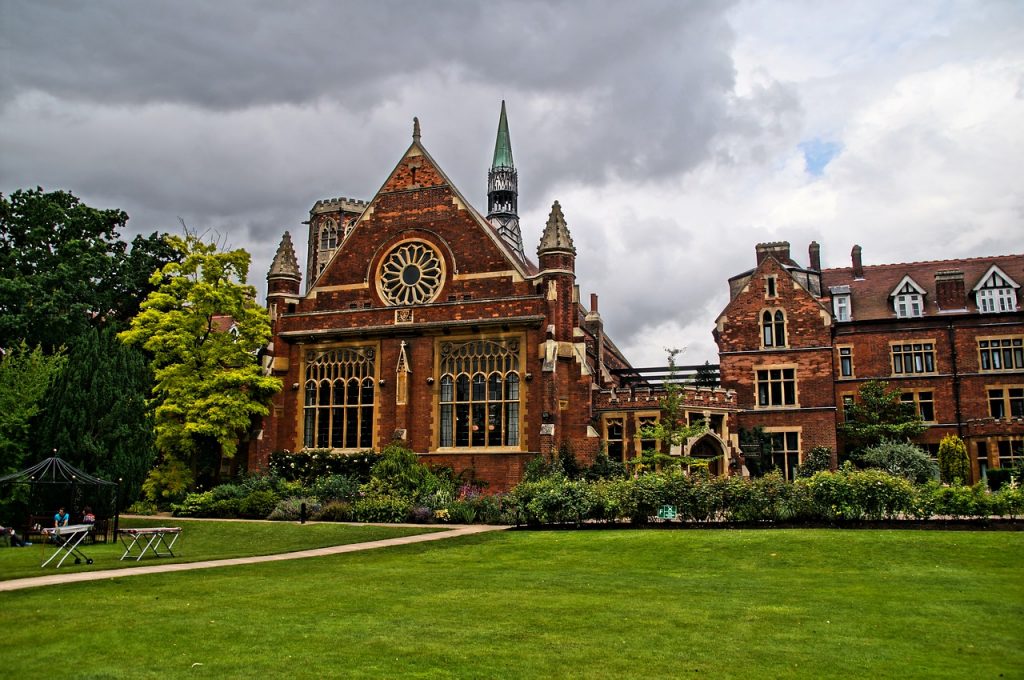THE JEFFERSON-MADISON DEBATES: Can the Constitution Survive?
July 17th, 2019 // 8:20 am @ Oliver DeMille
PART I
 European “Conservatism” and American “Conservatism” are not the same thing.[i] It’s important to realize that “conservatism,” in the generic, isn’t defined as a specific platform or set of ideals. It’s simply the posture and priority of “conserving” a certain tradition or form, as opposed to “liberal–ly“ or “progressive-ly” moving away from said tradition or form.
European “Conservatism” and American “Conservatism” are not the same thing.[i] It’s important to realize that “conservatism,” in the generic, isn’t defined as a specific platform or set of ideals. It’s simply the posture and priority of “conserving” a certain tradition or form, as opposed to “liberal–ly“ or “progressive-ly” moving away from said tradition or form.
As George Will has pointed out, in Europe “Conservatism” was rooted in protecting monarchy, aristocracy, and the class system (where the many are ruled by the few), while in America “Conservatism” means protecting and maintaining the U.S. Constitution and the principles upon which it was framed, including the key principles articulated in the Declaration of Independence.[ii] Indeed the Declaration itself initiated the end of European Conservatism in America.[iii]
The tug-of-war between American Conservatism and Progressivism has been part of the American story ever since.[iv] Progressivism has gone through several stages–all of them a direct and escalating attack on the Constitution:
Step 1- Statism: Increase the size and scope of the government
Step 2- Centralized Statism: Increase the size and scope of the federal government
Step 3- Liberalism: Use the increasing size and scope of the federal government to redistribute money from the affluent to the lower classes by state force
Step 4- Socialism: Use the increasing size and scope of the federal government to redistribute money from the affluent and middle classes to the lower classes by state force, putting control of the federal government in the hands of a few, and also mandate social and environmental causes that require the federal government to grow even more
Step 5- Globalized Socialism: Expand progressive goals to include federal government programs for people around the globe (not limited to American citizens), requiring a massive expansion of government size and scope and progressive transfers of power and sovereignty from the American voters (and voters within other nations) to international organizations, agreements, and entities
We are currently in the High-Growth Phase of Step 4 and the Early-Growth Phase of Step 5.
PART II
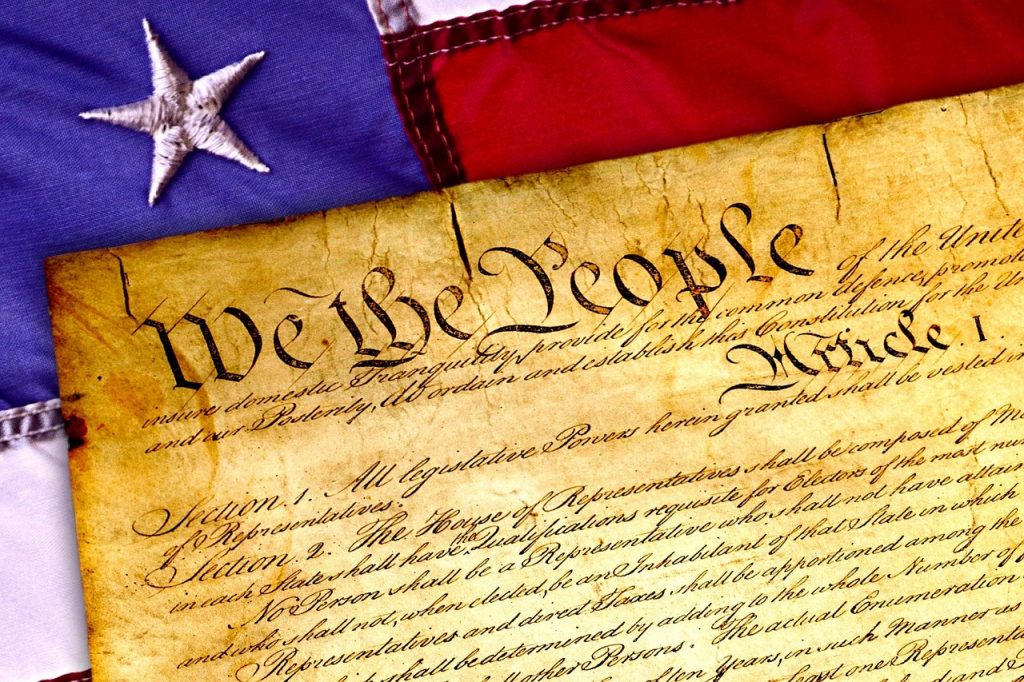
American Conservatism, in contrast, focuses on implementing the U.S. Constitution, a return to Constitutional limited government (to the extent that we’ve moved away from the Constitution), and a citizenry that rules itself rather than being ruled by a class of elites.[v] Today the battle between Conservatism and Progressivism is in full swing.
To measure which side is ahead in this contest, the scoreboard is a simple two-question matrix:
- Is the size, scope, debt, and expenditure of the federal government shrinking?
If “Yes,” Conservatism is winning.
- Is the size, scope, debt, and expenditure of the federal government expanding?
If “Yes,” Progressivism is winning.
This is the only real indicator of direction, momentum, and victory. Every other possible marker can be faked or obscured. What this scoreboard shows is that the following administrations in the modern era have increased American Progressivism (thus decreasing Conservatism/Adherence to the U.S. Constitution):
- Roosevelt
- Truman
- Eisenhower
- Kennedy
- Johnson
- Nixon
- Ford
- Carter
- Reagan
- Bush
- Clinton
- Bush
- Obama
- Trump
In contrast, the following administrations reduced the scope, size and expenditure of the Federal Government, increasing American Conservatism and adherence to the U.S. Constitution:
NONE
This comes as a surprise to many conservatives. Indeed, this reality makes it clear which approach is winning: Progressivism. But surely some of the more conservative administrations at least significantly slowed down the increasing scope, size and expenditure of government, right?
The following administrations significantly slowed these things down:
NONE
This must have been caused by the opposing liberal Congress faced by certain administrations, right? The following administrations attempted to significantly slow the increase of the Federal Government’s size, scope, and expenditure, but were thwarted by the Congress:
NONE
At first glance, for conservatives at least, this doesn’t seem to make sense. Clearly there is a big difference between some of the administrations, that of Carter and Reagan for example, or Obama and Trump. While this is true, the actual differences are not what most people tend to think.
Where the genuine application of Conservative principles often results in significant benefits to the nation, the overall trend since 1944 can only be characterized as firmly escalating in the direction of Progressivism. The nation has occasionally profited from a short-term implementation of Conservative principles (e.g. Eisenhower, Reagan, Trump), but this has not resulted in a reversal of the Progressive trend.
Moreover, during this entire timeline, Progressive momentum has accelerated. It has never reversed. Conservatism (protection and application of the U.S. Constitution and Constitutional limits) has given way to Progressivism (the expansion of the welfare state and the size/scope of the central government) during every administration in the post-World War II era.
A more accurate understanding of these trends is possible if we consider the dominant Steps of Progressivism implemented in modern American history. This allows us to more clearly rate the Conservatism vs. Progressivism of each administration:
Dominant Focus of Washington D.C. from 1860-1913
Step 1- Statism: Increase the size and scope of the government
Dominant Focus of Washington D.C. from 1913-1944
Step 2- Centralized Statism: Increase the size and scope of the federal government
Dominant Focus During the Truman, Kennedy, and Clinton administrations
Step 3- Liberalism: Use the increasing size and scope of the federal government to redistribute money from the affluent to the lower classes by state force
Dominant Focus During the Eisenhower, Nixon, Ford, Reagan, Bush, Bush, and Trump administrations
Step 2- Centralized Statism: Increase the size and scope of the federal government
Dominant Focus During the Roosevelt, Johnson, and Obama administrations
Step 4- Socialism: Use the increasing size and scope of the federal government to redistribute money from the affluent and middle classes to the lower classes by state force, putting control of the federal government in the hands of a few, and also mandate social and environmental causes that require the federal government to grow even more
Dominant Focus of the Current Left since 2016
Step 5- Globalized Socialism: Expand Progressive goals to include federal government programs for people around the globe (not limited to American citizens), requiring another massive expansion of government size and scope and progressive transfers of power and sovereignty from the American voters (and people within other nations) to international organizations and entities
PART III

There are at least three significant considerations in all of this that every American needs to understand:
- None of the presidential administrations in the post-World War II era have implemented Conservatism (the genuine application of Constitutional limits). All have supported the Progressive agenda at some level (increase of the size and scope of the federal government beyond its Constitutional boundaries, including an expansion of the welfare state). Some administrations promoted this more than others. But all are complicit in Progressivism, while none adhered to Conservatism as defined above (the Application of all Constitutional Limits, versus Increasing the Scope, Size, and Expenditure of Government).
- Presidents considered by many to be the most “Conservative” (including Eisenhower, Reagan, Trump) promoted Step 2 Progressivism but not Step 3 Progressivism. Specifically, they actively increased the size and scope of the federal government, but didn’t drastically increase redistribution of money/programs from the affluent to the lower classes by state force. This led to economic upturn through deregulation—a good result. It did not, however, reverse the momentum of the welfare state or reinvigorate Constitutional limits; as a consequence, the trend toward bigger government and increased Progressivism continues unabated.
- Presidents widely considered the most Progressive (Roosevelt, Johnson, Obama) implemented Step 4 Progressivism (socialism: major redistribution from the upper and middle classes to government programs nominally for the poor and disadvantaged) and drastically increased the growth rate of the long-term Progressive trend. This always coincided with major (albeit medium-length) economic downturn.
There has been no genuinely Conservative presidential administration (one focused on maintaining the limited size and scope of government to the specific limitations of the Constitution) since presidents Harding and Coolidge in the 1920s. All administrations since that time have promoted an expansion of the federal government in size, scope, and expenditure. The growing welfare state (Progressivism) has continually won out over Constitutional limits (Conservatism).
This has been aided by a number of decisions in the Court expanding the scope of the federal government and naming many additional federal powers “constitutional”. Ironically, such decisions are, according to the original words of the Constitution, unconstitutional.[vi]
PART IV
Why?
Why have all administrations since the mid-1920s joined the Progressive trend, even while many have loudly proclaimed their “bona fide Conservatism”? The answer may be as simple as that suggested by George Will[vii]: Most Americans actually like a lot of our government programs. And today we want more of them, not less. We want programs for “other people” to be cut or discontinued, but we tend to cling to government programs that directly benefit us.

Irony is at work here. On the one hand, voters seem to want freedom—but within limits. Specifically, they want more freedom for themselves than for others. And they want government programs—also within limits. The masses want something that has never been a reality—the quality levels attained by private schools, private institutions of higher education, private health care, and private-sector prestige jobs, provided free to all by government, and paid for by “the rich”–“the 1 Percent”.
Another way to describe our situation is that Progressivism has largely won the battle for the hearts and minds of most Americans. The Conservative ethos—that government should protect our freedoms by adhering to the U.S. Constitution, and give us nothing else, nothing at all, because the rest is up to us alone, our individual hard work, tenacity, initiative, ingenuity and good choices—is now largely a foreign concept.[viii] It is as quaint in our cities, and beyond, as vinyl records or public payphones. We want government to do things for us—lots of things. “How else will it get done?” most Americans now ask.
A majority of Americans now want to work less, make more, and receive a lot of extra government benefits paid for by someone else. If that’s what it means now to be an American, then America is on the path to major decline.[ix] And perhaps the most shocking point: Almost nobody is arguing about this.
We argue about whether or not such government benefits should go to illegal aliens. Some say “Yes, of course. Be generous”, while others respond “No way! Don’t make me pay for their needs. What about Americans, what about our needs?” But both sides miss the deeper issue. Again, most Americans now want to work less, get paid more, and receive a lot of extra government programs paid for by someone else. As long as this is our agreed-upon worldview, we’re in decline, and sinking fast.
We have, on one side, those who want more government benefits for everyone. Another side wants fewer government programs/expenditures for those who aren’t Americans.
But where are those who refuse all benefits that the government offers to them, preferring freedom? —the citizens who want to stand on their own, to make their own way without government help, who want to actually be free? Where are those kind of Americans today?
Without them, American-style Conservatism is extinct. Without them, Progressivism has won.
Most modern Americans want independence without having to select the choices that make them independent. “With all the taxes I pay, I’m not going to turn down government benefits.” The problem is, at its root, that government forces us to pay for the welfare state, whether we accept any of its benefits or not. For most people, as a result, rejecting the benefits appears illogical, even stupid. And they’re right.
But can the Constitution survive such a populace? If the masses want to work less, make more, and refuse to reject government benefits, the government will continue to grow. Limited constitutionalism is already over, in such a world.
Prediction: Unless this changes, we will only elect those promising the easy path, and we will vote ourselves consistently into decline. The Republican Party will oscillate between Progressive Steps 2 and 3, while the Democrat Party will swing back and forth between Progressive Steps 4 and 5. Regardless of which side wins elections, the federal government will keep expanding. Freedom will be redefined, redirected, and reduced, and eventually it will disappear, following the long-established pattern of great power nations.[x]
There is, of course, a solution. It is called limited government. It is outlined in the United States Constitution.
First: the federal government must be held to the twenty powers (only 20!) outlined in Article I Section 8 of the U.S. Constitution.
Second: the Executive branch and its agencies must be required (by the voters, and all those they elect) to actually follow the Constitution. Third: the Court must also be required to follow the Constitution (by the voters, and all those they elect), without dodging this duty by claiming that it can simply redefine the document whenever it wants.
The voters have all the power to make these three things happen.
We have the blueprint. It will work, if the voters demand it.
But it will only work if the voters demand it.
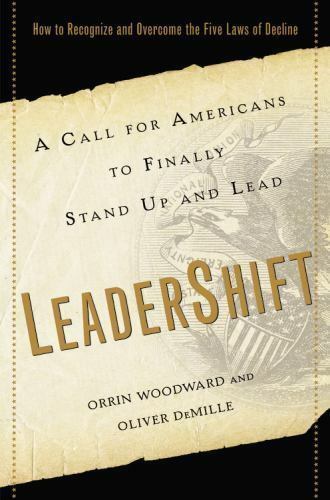 *How can we get regular citizens to be this kind of voter? The answer is outlined in the book LeaderShift: A Call for Americans to Finally Stand Up and Lead, by Orrin Woodward and Oliver DeMille. In LeaderShift you’ll learn the 5 Laws of Declining Nations, why America is currently failing all 5 Laws, and what to actually do about it. Find out how to get America back on track for the long term!
*How can we get regular citizens to be this kind of voter? The answer is outlined in the book LeaderShift: A Call for Americans to Finally Stand Up and Lead, by Orrin Woodward and Oliver DeMille. In LeaderShift you’ll learn the 5 Laws of Declining Nations, why America is currently failing all 5 Laws, and what to actually do about it. Find out how to get America back on track for the long term!
NOTES
[i] See George Will, 2019, The Conservative Sensibility
[iii] See Russell Kirk, 1974, The Roots of American Order
[iv] See Arthur Schlesinger, 1986, The Cycles of American History
[v] See op cit., Kirk; see also W. Cleon Skousen, 1985, The Making of America
[vi] The Constitution of the United States, Article III; see also Madison, Hamilton, Jay, 1989, The Federalist, Papers 78, 80, 83
[vii] See op cit., Will
[viii] See Oliver DeMille, 2014, The U.S Constitution and the 196 Indispensable Principles of Freedom
[ix] See Orrin Woodward, 2014, And Justice for All; see also Jonah Goldberg, 2018, Suicide of the West; see also Thomas Sowell, 2007, A Conflict of Visions
[x] See Paul Kennedy, 1987, The Rise and Fall of the Great Powers
Category : Aristocracy &Blog &Citizenship &Community &Constitution &Culture &Current Events &Economics &Featured &Foreign Affairs &Generations &Government &History &Independents &Information Age &Leadership &Liberty &Politics &Prosperity &Statesmanship
THE JEFFERSON-MADISON DEBATES: A New Cold War is Coming PART II
June 11th, 2019 // 7:41 am @ Oliver DeMille
What Americans Can Do To Effectively Protect American Freedoms in the Decades Just Ahead
(Book Review of American, by Shanon Brooks)
Note to reader: read Part I of this report here >>
I. The Challenge
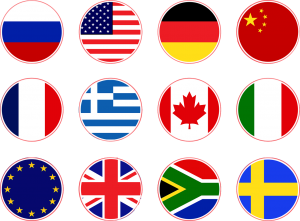
The 21st Century is shaping up as an era of major conflict, between (1) the three superpowers (the U.S., Russia, and China) and their allies and proxies (the European Union, Israel, North Korea, Iran, etc.), and also between (2) the Red- and Blue-state cultures that are further dividing America. If the U.S. doesn’t fix the problem (2) above, it will almost certainly lose the first battle (1) to China and/or Russia.
But what can regular Americans actually do? What will really work?
The three most effective things Americans can do to maintain our freedoms, families, and leadership in an increasingly dangerous world are:
- Spread great, classics- and freedom-based, leadership education
- Engage entrepreneurialism, the key to free enterprise, and encourage/help others to do the same
- Vote correctly and influence other voters to do the same (to protect and increase freedoms), and effectively influence government between elections
The battle for world leadership will come down to how well Americans do these three things. If we don’t win this battle, the world by 2040 will likely be run by two superpowers: China and Russia. Freedom values will be at odds with the rest of the world, and greatly reduced in the United States. Socialism will be the norm from the California redwoods to the beaches of Florida, from the Midwest to the Plains, and from the Rockies to Maine, in the cities and farms, and across all fifty states. Many of our most cherished freedoms will be reduced, or stolen.
How can we ensure that this doesn’t happen? A new book addresses this very question. This may be one of the most important books of our time; if we read and understand it, and take the right action, the future of America, our freedoms, our economy and our families, will be bright. If we don’t take the needed action…freedoms will be lost, socialism will spread, and families will suffer.
The book is titled simply, and sagely, American.
II. The Journey
Indeed, the title says it all. Written by Shanon Brooks, American gets to the heart of the problem, and the solutions. As Brooks puts it: “…we are killing the American Dream. Out of the top 30 countries in the world, the U.S. ranks 16th in literacy…and 14th in problem solving.”
Does that sound like a superpower? Or more like a past leader currently in decline? If we’re only 14th in problem solving, how can we truly expect to lead in the decades ahead, to tackle and solve our greatest problems, to help lead the world as it faces and overcomes the challenges ahead?
But the problem is even more daunting. Brooks wrote:
“National unfunded obligations are more than $100 trillion while U.S. household debt is at an all-time high of $13.2 trillion. We have one of the most litigious societies in the world, our incarceration rate is among the highest globally, and our state and federal legislatures are convinced that they are our cradle-to-grave caretakers.”
Unless something changes soon, and in major ways, we are not on the path to increased freedoms or economic opportunities for our children or grandchildren. In fact, we are quickly headed in the opposite direction.
As Brooks notes:
“How can we claim that America is the greatest nation in the world when 60% of our population can’t even pass the U.S. citizenship test? What have we done with the legacy of liberty that the founders so carefully crafted for us? And what are we creating to pass down to our children and grandchildren?”
The problem is real. The divide between those who even care about freedom and those who don’t is quickly expanding. And the root of the problem is at the very core of our daily lives: how we are educated, how we make a living, and how we participate (and don’t participate) as citizens overseeing and governing our own nation. As Travis Slade notes in the preface to American: “Pretty much everything about how we live today is killing the American Dream.” He’s right. And this book, American, is much more than a handbook on the principles of freedom—it’s all about how to apply those principles in the world today, in this economy, given the reality of the world we actually live in. Along the way, it addresses real issues across the board, including:
- Our Decaying Education System
- Our Work Life—Pros and Cons
- The Way People Vote and Otherwise Participate (or don’t) in Overseeing Our Government
- Commercial and Residential Construction
- The Health Care Industry
- The Transportation Industry
- The Food and Grocery Industry
- Local Law Enforcement
- The Issues of Immigration
- The Regulation State versus Free Enterprise
- Socialism versus Investment
- Employee versus Owner Mindsets
- Federal Government Overreach
- …Etc.
American asks us to seriously consider a number of poignant questions, questions that our national school/education system has patently taught us not to ask—or even think about in any meaningful way.
For example: “How can the American Dream be alive when each new American baby…inherits $300,000 of national debt…?”
And “…bureaucracy so deep and stifling that most just give up and give in.”
This book describes an America the Framers wouldn’t even recognize, a nation deeply entrenched in a bureaucratic quagmire the likes of ancient Byzantium, with a few celebrities, wealthy super elites, and top government officials (and their families) enjoying benefits akin to a medieval Venetian aristocracy.
And we call this “American?” It isn’t. It was supposed to be different. It was designed to be different. But only the people are capable of keeping our freedoms, as the Framers warned. No elites will save us. It is up to regular Americans.
III. Solutions
The best part of American is the solutions. I won’t spoil the book by listing them all here, or going into detailed applications and strategies, but they cut right to the heart of the matter, skipping symptoms and focusing on what we really need to do in order to steer things in the right direction. If we want real freedom, and effective results, we’re going to have to act. Brooks outlines what we need to do, and how to get started.
Specifically, as mentioned above, this book emphasizes the three major things we need to influence, change, and improve if America is going to survive as an effective beacon of freedom—in the world, and at home to the rising generations.
First, the right kind of education. Second, the right choices in the way we as a people make a living. And third, the way we vote—what goes into our voting decisions and the way we train up young people to be wise voters—and the ways we actively participate in governing our nation between elections.
Ultimately, these three things boil down to the quality of our learning, the kind of education we share, support, and pass on to our children and especially our young adults. If we get this right, the rest will follow. If not, our freedoms are very much in danger. America simply cannot survive three more generations of education like what we currently have.
We actually have two education systems in modern America, one for elites and those who work as the elites’ advisors, professionals, and managers, and another for the masses. Most Americans attend the second type of schools; the result is that America now educates mostly followers. This hard-to-hear reality is, nonetheless, true. It is time to face it openly, and change it. American is not just a great book on freedom and leadership, but an excellent book on higher education, right up there with Henry Newman’s great classic The Idea of a University, The Higher Learning in America by Robert Hutchins, An Education for Our Time by Josiah Bunting, and The Closing of the American Mind by Allan Bloom. Brooks benefitted from the ideas in all of these, and many others, and as a result American is the best book on higher education that I have ever read.
Every American who cares about freedom and our future should read it. And every American should care about freedom and our future.
Perhaps most importantly, Brooks’ book will introduce the reader to a number of very important ideas and principles that are seldom discussed anymore—in schools, homes, churches, or places of business, and certainly not by the media—but were once understood, cherished, and debated by every free American. The early Americans taught these things to their children, and were ashamed if any of their children couldn’t articulate these principles of freedom and life fluently and in detail. Such principles constitute the bulk of chapters 1 through 10 in American. Knowing them fully, and understanding how to apply them in society, was once considered crucial to being an American. They have now been almost entirely lost, and with them many of our freedoms. To reboot our freedoms, we must understand these vital principles and ideas.
It is time for us to know them. To pour over them, and to master them. To share them, teach them, talk about them, debate them, and apply them. It is past time. We cannot wait any longer. We must act. Again, our freedoms and the future of our posterity are at stake. If we get the freedom principles right, if we understand and effectively implement them, we will be another generation of American heroes. If not, the candle of American freedom will be snuffed out.
This is true. This is real. This is happening.
Not every person will apply the things learned in American the same way. Or even agree on every specific. This is the way it should be—free people applying principles differently, based on personal mission. But all of us should learn them. Know them. Ponder, discuss, and apply them as inspired.
It is time.
To act…
Recommended Reading
- American (Shanon Brooks) 2019—Available on the Monticello College website >>
Category : Aristocracy &Blog &Book Reviews &Business &Citizenship &Community &Constitution &Culture &Current Events &Economics &Education &Entrepreneurship &Family &Featured &Foreign Affairs &Generations &Government &History &Independents &Information Age &Leadership &Liberty &Mini-Factories &Mission &Politics &Prosperity &Statesmanship
TODAY IN THE NEWS by Oliver DeMille
May 6th, 2019 // 6:44 am @ Oliver DeMille

I. Today in the News
There is so much going on in the news these days–big events that have major potential to influence the future of our nation and freedom. Unfortunately, almost all the news is reported with strong partisan leanings. The slant and spin are frequently overwhelming.
To respond, I’ve decided to do a several-times-a-week news post that steps away from current partisan spin and addresses the big news of the day from the perspective of the U.S. Constitution and the viewpoint of the American Founding. It will give readers a different way to look at things several times a week. I’ll try to keep these brief and to the point, just a few paragraphs per post. I hope you will comment and share so this can influence people…
Here’s the first post:

Friday, May 9, 2109
The Democrat-led investigative committees of the House of Representatives are threatening to force the Attorney General of the United States and other Administration officials to testify, even to the point of contempt charges and sending the House Sergeant of Arms to arrest and detain them until they comply. Many Democrats (and left-leaning mainstream media) claim they have this power (though it hasn’t been used in nearly 80 years), while most Republicans argue that this would violate the Constitution with the Legislative Branch usurping duties held by both the Executive and Judiciary. Founding Father St. George Tucker wrote about this same threat in 1803 and outlined 6 specific ways this action would violate the Constitution; his list sides with the 2019 Republican view (The Founders’ Constitution, vol. 2, pp. 311-313.) So–no surprise–there’s a partisan split on the topic.
But let’s look at this from a third perspective. Speaking ironically: wouldn’t it be great if the House did it and made it stick?
Before you answer…think about it. On the one hand, the Democrats are wrong about this on Constitutional grounds, so that would be bad. And in an ideal world, that should be the end of the discussion.
But on the other hand (again, speaking ironically), wouldn’t it be nice to see the House of Representatives actually do something to check another branch of government? This is hugely important.
The Framers gave the House the biggest check of all–the power over the purse strings, meaning control of all money spent by the federal government–because the House members are the federal officials most easily removed and replaced by the voters. The Framers wanted the people, the voting public, to have the biggest voice in the federal government, and the only direct voice they gave the people was through the House.
But the House hasn’t used its purse strings to check the Court or the Executive Branch in big, meaningful ways for many decades. Executive Agencies and the Courts have gotten away with numerous unconstitutional actions because the House has been weak. Indeed, where the Framers wanted the House to have the most power of all the entities in the federal government, today the House is the weakest.
Not good.
To the current threat of the House apprehending and jailing uncooperative government officials: If the House followed through on this threat, it would create a precedent that the House can arrest and jail members of the other branches who aren’t obeying the law. Not the ideal system of checks and balances, to say the least; but might it actually be better than the House (and the people) having basically no power at all over the other two branches?
If we’re going to violate the Constitution routinely, this violation would at least be a path that gives more power to the people. Right now, given current news of the day, this seems bad to conservatives; but they would have loved it when Eric Holder ran “Fast and Furious” and the House could just arrest and jail him.
Yes, this sounds a bit wild; but given the current lack of House power, you could make a case that this is a step in the right direction.
Yeah, of course
Ideally the House would just fulfill its Constitutionally-defined duties and use finances to check the Executive and Judiciary. If the House isn’t going to follow the Constitution, and the voters aren’t either, then is allowing the House to have some little power to check the other two branches a lesser evil?
What do you think? Whatever you decide, this kind of considering each branch’s options is exactly the way the Founding generation would have thought about it. Today, far too often, Americans simply accept whatever the media, party leaders, or experts say, without thinking about the issue from all angles like the regular citizens did in early America.
Which is worse: a House that has no power versus the Executive Agencies and Courts (allowing them to run rampant), or a House that can arrest government officials who are violating the Constitution? Sometimes the House would get it wrong, but the alternative is that the Executive Agencies and Courts act with almost unlimited power and impunity.
Where do you stand on this?
Please comment and share….
II. Free Enterprise is Better than Socialism or Capitalism
“It is no crime to be ignorant of economics, which is, after all, a specialized discipline and one that most people consider to be a ‘dismal science.’
But it is totally irresponsible to have a loud and vociferous opinion on economic subjects while remaining in this state of ignorance.”
—Murray Rothbard
THERE is a battle raging for the future of America. And, by extension, this battle impacts the prospects for freedom around the world. Indeed, if the great system of freedom initiated by the Declaration of Independence and established by the U.S. Constitution is lost in the United States, it will likely take centuries before real freedom regains its current levels of influence in the world.
This is the great struggle of our generation, but sadly the center point of this contest is unclear to most people. Only a relative few understand what is actually going on behind the scenes.
In fact, this battle for our future hinges on two main questions.
The first question is:
Will Socialism or Free Enterprise be the leading economic system of the 21st Century?
Category : Aristocracy &Blog &Citizenship &Community &Constitution &Culture &Current Events &Economics &Generations &Government &History &Information Age &Leadership &Liberty &Politics &Statesmanship
The Jefferson-Madison Debates: How to Get the Real News in 2019
February 6th, 2019 // 12:06 pm @ Oliver DeMille
by Oliver DeMille
Part I

Since the night of the 2016 U.S. presidential election, the rules concerning media have changed.
Before this watershed event, a person could get a decent understanding of what is going on each week by consuming three pairs of news products:
(1) a liberal and also a conservative nightly news program or Sunday morning weekly show,
(2) a regular liberal and also conservative newspaper or magazine, and
(3) at least one or two non-typical news sources that include different perspectives (e.g. The Economist, providing a British view outside U.S. Republican/Democrat thinking; Foreign Affairs, a peer-reviewed journal presenting scholarly perspectives on major world trends and issues; and/or a business or cultural publication that addresses news but mainly emphasizes how current events impact the economy and society, such as Fortune, Forbes, The Atlantic, Harper’s, or Vital Speeches of the Day. A number of publications fit this third description, including my favorite, The Harvard Journal of Law and Public Policy.)
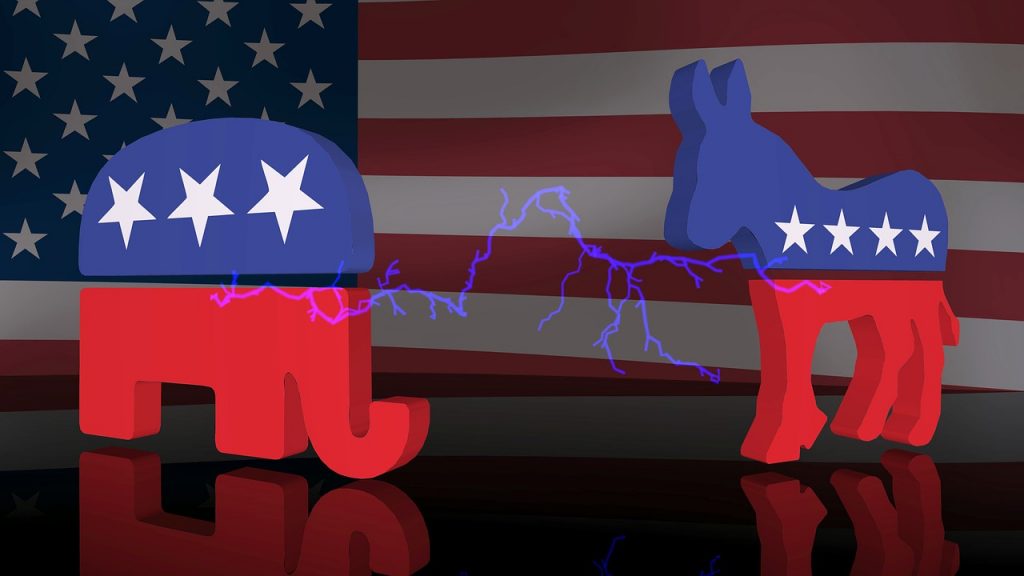
Today, sadly, this formula won’t help most citizens understand what is actually happening in our nation. The mainstream media has become almost exclusively partisan, and conservative news outlets, even those striving to be objective, seem to spend most of their resources and energy rebutting mainstream stories. This intense, and often angry, debate between Left and Right media has been good for certain corporations, but not very friendly to truth. The media is mostly agenda now, with far less journalism than in earlier decades.
So how does a citizen keep a close eye on current events? Yes, you can apply the old formula, by reading The Washington Post and The Wall Street Journal every day, but in this digital age the e-media has moved on by the time old-style readers can digest what almost always amounts to “yesterday’s headlines.” The issues people are talking about are more current (to the hour), more edgy, and almost always tainted with partisan spin.
“The facts, ma’am, just the facts,” is no longer a reality in most venues. Also gone to the dustbin of history is the sensible viewpoint described here: “Tell us what happened, and let us draw our own conclusions about what it means. Report the news. We’ll weigh it, consider, and apply what we’ve learned as needed.” These are now mostly sentiments of a bygone era.
In the same vein, “We are journalists; trust us…” is a ridiculous statement that never held much sway. Americans in the 1950s and 1960s largely trusted the news precisely because journalists didn’t expect people to “just trust them”. These same journalists would have laughed off a criticism of “fake news” precisely because the quality of their work wasn’t anything close to fake. The suggestion of “fake” would have made them smile. Today, in contrast, it scares them.
Why? Because agenda news isn’t journalism.
Talking Heads
We have, as mentioned, entered a new era of media. This trend is based on more than the hordes of niche media consumers who frequent only one news outlet that mainly agrees with their own politics, be it mainstream or conservative, broadcast or online, and seldom if ever compare what other news providers are saying. It’s deeper than whether you love Jim Acosta’s “integrity and grit” or dislike his “rude partisan rants”. It also goes way beyond Fox versus MSNBC debates, or whether you love Rachel Maddow, Ben Shapiro, or even Steven Pinker versus Jordan Petersen.
The problem, the real crux of the issue, is that a lot of Americans would still like a simple, balanced, focused-on-the-facts source of news and current events, something they can trust to tell them both sides, and a third or fourth side where applicable, while treating them like adults who think for themselves and don’t need experts to hold their hand and tell them what to think. Foreign Affairs still does this most of the time, as does The Harvard Journal of Law and Public Policy and others like Foreign Policy and Harvard Business Review, but these don’t usually address the daily or even weekly news. They can add a lot to whatever our daily source of news is, but they don’t take its place.
The bad news is that there is no single source we can go to for such news anymore. The good news is that there is a solution. But like a lot of other things in the postmodern age, it requires us to look at things very differently. Specifically: it’s no longer what news source we use to stay abreast of current events; now the focus has shifted to how we read, listen to, or watch the news.
What exactly does this mean? Put simply, the best way to get the most out of the news in our time, to really see through the widespread partisan spin and understand what’s going on in the world, is to call the media’s bluff. We have to stop thinking of the news as media—objective news or fake news—and start seeing it for what it really is: entertainment.

That’s right. The news is entertainment. Merely entertainment. Period.
Twenty years ago this would have been a criticism of those providing the news, but that’s not what I intend here. I am not suggesting that because the news has become entertainment it has lost its value, or turned worthless and untrustworthy. That might be the first thought that comes when you accept that news is now largely entertainment, with only a tiny bit of journalism sprinkled in. But that’s not what I’m saying.
The Good Ol’ Days
We can pine for the old ways—the time when “journalists were journalists” and trust was natural and simple. But this is like telling our kids that when we were young we walked to school everyday barefoot in the snow, uphill both ways. It just doesn’t apply anymore, even if it was ever true. If you’re looking for unbiased, or at least mostly objective media, free of spin, partiality, or partisanship, you’re going to struggle.
Even the journalists who try, who work hard to meet old-style journalistic standards every day, are impacted by the reality that the partisan agenda of many media outlets is itself news, and when one column or broadcast skews the facts, or even presents them truthfully but not transparently, even the most objective newsperson is going to need to show this news—and in passing along the story, and responding to it, even as an attempt to set things straight and focus on the facts, it becomes part of the partisan debate.
This is the tough new reality. If a report is fake, those pointing out its flaws become part of the other side. If, on the other hand, a report is not fake, those showing this are openly at odds with the side that disagrees. Avoiding the battle is akin to going off the air, or stopping the presses. Every story is now part of an agenda, for or against.
So, again, how can the citizen who just wants to know the facts be sure he is getting them? The solution is counterintuitive. If you look for the facts, “just the facts”, you’ll get bombarded by both sides, and you still won’t know which set of facts is most accurate about specific details. This is one reason so many people today simply pick a side and limit their news consumption to one or two sources—those they already agree with, in most cases.

But to really get the most from the news, try a totally different approach. Step back, relax, and stop going the news for facts. Instead, start seeing news as entertainment. They want you to watch, because they want two things. The increased ratings they get when more people tune in. And, just as important, to convince you that their set of facts is the right one. The best one. The one you should trust. Ratings and power, ratings and influence ratings and marketshare, ratings and product sales—this is the new media.
If you’re trying to get the truth, this can be frustrating. But if you’re there to enjoy the entertainment, it can be a lot of fun—and quite informational in the process. It’s enjoyable to see two sports teams fight each other for victory. If you’re too emotionally tied to one team, the game won’t be nearly as fun unless they crush the other side (which means that most of the time you’ll be disappointed). It’s fun to see opposing racehorses push each other around the final turn. But if you’re emotionally connected to one winner, most races lose their joy. It’s fun to watch dueling news reports unfold and reveal which was right. Of course, this only works if you let it. It won’t be fun if you agitate about who is right versus wrong, or who is ruining our country versus bravely sharing the real news. If you get caught in that mousetrap, it’s painful, and confusing.
But if you watch the duel for fun, and pay close attention to the details and who scores more truth today versus tomorrow, which news show gets the most right versus the most wrong, it can be really enjoyable. And, amazingly, you’ll learn a lot in the process—a lot more than the other people in your city, or nation, who love one source of news and hate the other channels, or who are convinced it’s mostly “fake news” or, alternatively, that hardly any “fake news” is really happening.
Nothing News Under the Sun
People on both sides, by limiting who they’ll listen to and closing their minds to different viewpoints, tend to get more wrong than right. Those who are too emotionally connected to one side, against the other, frequently get in the way of their own common sense—they are easily led this way and that, by a news media that is actually now a branch of entertainment.
Only those who openly see that it’s all entertainment, and treat it according, are able to glean a lot of value from the news, and at the same time recognize its glaring limitations and blind spots. People who watch the news for entertainment naturally turn on their analytical and creative brains; thus they understand a lot about what’s really going on. They start “reading between the lines.” And they are much more likely to notice gaps in the media coverage that demand more research and consideration.

The blind followers—on both sides—are too busy being swayed by the latest broadcast, polls, “crisis”, or post. The relaxed thinkers, who knowingly watch the news media as entertainment, learn what the two sides of the political battle are thinking and doing on any given day/night, and they simultaneously have the creative (not emotionally driven) space to see that there are other things, often more important things, happening. They see the news as one little part of the big picture, which means they are watching the big picture—not caught in today’s agenda.
In our current world, watching the news as entertainment is highly valuable. Watching it as journalism is naïve and usually debilitating.
That’s the rub.
And you probably already knew that.
Part II
Let’s apply this on a deeper, and more important level, “the big picture”, so to speak. The ruling elite don’t like it when serious competitors try to rise to their level of power. For example, when Joe Kennedy declared war on the elite establishment and tried to reduce their hold on things, elites fought back. Kennedy’s son, John, was shot in the conflict—assassinated, they say, by a lone gunman. Almost two decades later another man tried to accomplish the same goal—return real power in the United States from ruling elites to the people. Same goal. Similar agenda by a U.S. president bucking behind-the-scenes power, and the same result. Reagan was also shot by a lone gunman.
If you want to be sure your friends think you have extreme political views, tell them this is part of a conspiracy. If, on the other hand, you want to believe the mainstream media, you’ll chalk these parallel historical events up to pure coincidence. The pattern is clear: take on the elite powers; refuse to back down when they use media, academia, and their own experts to discredit your project; and then get shut down by some surprising, unplanned, random event that seems totally unrelated to those in power, to those who directly benefit the most from what happens.
That’s the American history we teach in U.S. schools every year.

Enter Donald Trump. He has openly taken the first two steps in this process. Does this mean Step 3 is coming—some sort of major event that shuts down his project to unseat America’s ruling elite? If so, what do elites have in mind? A Special Counsel probe that finds something truly treasonous and brings an end to a presidency? An economic shock that drastically deflates the economy—like during the Hoover era? A RINO Republican Congress that successfully impeaches a sitting president? Or something else? Possibly an international event that changes everything, something unthinkable like an EMP or foreign use of a biological weapon that impacts the U.S., major devaluation of the dollar, or a sudden debilitating rise in oil prices?
The reality remains to be seen—“to happen or not to happen, that is the question”. But one thing is clear: the ruling elite (in both parties) aren’t happy with Trump. A number of people, and no doubt various groups as well, are brainstorming and planning for significant change. In some way. And soon. Do I know what it is? Not at all. Can you or I guess? Probably not. It will likely be surprising, when it comes. If it comes. But one thing is certain: whatever is coming, few people in the media know about it, and the main focus of the news media is to distract people from what’s ahead—not warn them or help them prepare. The new media is agenda-driven entertainment — not deep wisdom.
Next
To prep the populace for the next crisis would defeat the main objective, which is to get as many people as possible to turn to elites for succor when crises arise.
Here is another certainty: almost nobody who is caught in the emotional daily sway of either media—mainstream or alternative—is giving this much, if any, thought. They are too focused on “the crisis of the day”, a powerful tool of media that almost never fails to get good ratings.
In other words, the only people who clearly see that some serious crisis (or series of smaller crises that build on each other) is coming, soon, and that it will take the nation in new directions that increase the influence of elites, or decrease their influence if Trump (or another outsider) wins the next skirmish, are those who watch the news as entertainment.
Watching the media and getting caught in today’s latest stress won’t help—you, or anyone. Trusting the media, or taking it at face value, won’t help either. This is entertainment, not journalism.

What will help? Simple: watch the media and see the ruling elite and Trump fight. See the tug-of-war as they strategize and clash, rebuild or refocus. Lose a point, win a point. Bluster, regroup, fight again. If you’re relaxed, and watching the media to witness an epic battle between the two main sides, each seeking control, you’ll learn a lot about what’s actually happening. It’s high drama.
Otherwise, you’ll think the daily crisis is actually the news. It’s not. It’s just the 24-hour-cycle contest for ratings, and the power that comes from agenda-loyal customers. But in each daily crisis there is a thread, part of an overall pattern, a back and forth brawl between the elites and their current opponents.
Like I said, it’s fun, or at least interesting, if you know what you’re watching.
Part III
“But what’s happening in our nation, and around the world, is so important.”
“Well, yes. That’s true. But what does that have to do with the corporate-run news?”
“Everything!”
“Wrong. It has almost nothing to do with the news, except that the deep importance of what is happening here and around the world is a powerful incentive to get people to watch. But the news itself isn’t about truth. It should be, one can argue. But it’s not. It’s about ratings and agenda. It’s about keeping the listeners tuned in, and loyal (so they’ll keep tuning in every day); once loyal, it’s about corralling them for political impact. But to make this work consistently, it has to be supremely entertaining. Otherwise, other media outlets out-entertain and get the ratings, not to mention most of the clicks.”
“But that’s so cynical.”
“And so true.”

This is our world now. It’s the “new normal,” as President Obama called it (though he had a flailing economy, not the media, specifically in mind). The problem is that most consumers of news media haven’t yet realized that it’s now just entertainment. As such, if we’re not too emotionally tied to the specifics each night, the news can very effectively teach us lessons because we watch and think about what we see–not directly, but by analogy, symbol and metaphor. There are a lot of useful lessons in entertainment; we can learn so much from plays, good novels, movies, sit coms, and news.
Or, more to the point, we learn best by watching the news like any other TV show, and then really thinking about what we watch—applying our best analytical, creative, and independent thinking to what the various “characters” in the big battle for our nation portray. It’s a very effective way to really understand what’s going on. Yes, of course, we also need to dig deeper, read up on events and issues well beyond what the daily news offers. Unless we go deeper, we’ll be starved for wisdom on a news diet of shallow.
But once we’re digging deeper, the daily fare will become interesting again, full of hints and innuendo that spur us to deeper investigation, rather than emotional spin that sways us like sheep. “Shutting down the government—so bad. The poor federal workers, and the plight of their families.” Or, in the view of the other half of the nation: “So good—long overdue. Shut it down more often. It’s too big anyway. Maybe this is the way to finally prune it back to the right size.” Whatever your perspective, on this or any other major issue, both sides are mostly extreme now. “A border wall is essential”, or “A border wall is evil”.

If we get trapped in this emotional tug-of-war, the news is both superficial and misleading. If we step back and admit that it’s mostly entertainment, and take it seriously as entertainment, a whole new view opens up. We start to see.
Also, it becomes fun. At least, it’s a lot more fun than tearing one’s hair out trying to make sense of the totally different messages (about the very same event) on Fox and CNN. Not that fun is the only goal. At some point we need to do something about what’s going on in the world, especially here at home in our own nation. This is the most important thing we can do. But when we let the media guide us, day in and day out, because we think they’re sharing truth when in fact they’re fully committed to agenda and ratings, then we end up doing mostly nothing. Or we do the wrong things.
Behind the Curtain

The first action in doing the right things is to really understand what’s going on. To do this in the current media environment, we must see behind the curtain and realize that it’s mostly bells and whistles now, mostly spin. All entertainment. But entertainment with an agenda.
Once we’ve made this leap, to the point that we can enjoy the entertaining debate, smile as the plot develops, and call the show what it is, a show, then we can naturally stop getting trapped by the emotion or swayed by the lead characters. We can watch the background, look for subtext and nuances, consider the goals of the directors and producers, and start getting a feel for what the media outlets are actually trying to create.
This is insider thinking, and very few people engage it. If you learn to call the media’s bluff, to treat it as entertainment because that’s what it actually is, and keep watching—but with a deeper viewpoint—you’ll soon begin seeing the real drama, backstage. When this occurs, you’ll be thinking at a whole new level, and instead of media sway you’ll experience a lot more independent thinking about what’s really happening and what needs to change.
That’s the goal. In truth, the only really good media is the kind where the consumer is skeptical, studies more deeply than most people do nowadays, sees all the main sides of the issue, and draws his/her own conclusions. Any media that effectively encourages this, on purpose or by accident, is a conduit to truth. Ironically, in our time, the more our current media turns to entertainment, for ratings and furthering their agendas, the more people are catching on. And, as a result, more people are digging a lot deeper.
This is a great development. We’ve still got a ways to go, but the modern media is doing us an unintended favor by driving more and more people to their own thinking and personal research for real answers. It wasn’t uncommon twenty years ago for most people to trust the media mostly at face value, accepting its words as truth and its anchors as “wise men”. That era is also gone, and it’s about time. If current trends in media continue, it won’t be long until a lot of the nation is reading, digging, researching, analyzing and writing a lot more—at much higher and deeper levels than we’ve seen since the advent of radio, and then television. This is a powerful development.
ACTION ITEMS
But what can we do?
First Action: Forget institutional news as a communicator of truth. It’s entertainment. It’s a show. Have fun with it. Watch it—yes! But forget the way it’s trying to make you feel and what it’s trying to make you think. Instead, compare and contrast, laugh at it, grin at how ridiculous a story is. Take notes—see which outlets and shows end up being mostly wrong, and mostly right. Watch it closely. Like entertainment—that latest episode of your favorite show, where you don’t want to miss anything. Night after night.
Second Action: As you do more of Action One, begin to read more, watch less. Research more, jump to conclusions less. Be more skeptical. Dig way below the surface reports. As you gain expertise on things, write more. Share your findings. Write about truth, not ratings or agenda. Start looking for others who do the same and follow their work.
Third Action: Eventually, as your expertise grows, write a pamphlet. Or, I guess, given our time in history, an e-pamphlet. A report. Blog it. Share it with others. Your voice of truth is important. At least you’ll be aiming for truth. As this approach spreads to more people, reliance on institutional media—funded and dominated by elites—may well go the way of payphones. Replaced by a better approach. It will at least diminish the level of modern reliance on the wrong kind of media. Technology is well positioned to support this change.
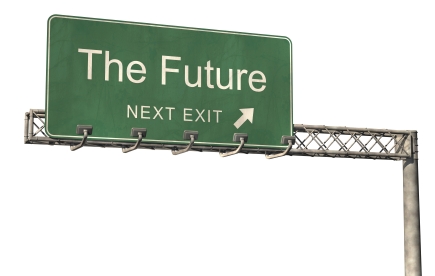
Note that this shift is already happening. But you can’t take advantage of it unless you see the corporate news as entertainment and only really trust news that you have personally researched in depth, digging into all sides and going deep.
Funny thing: this is how people in the American founding era approached news. It’s part of what made them such a freedom-loving people. They mistrusted the “official” news from any source, and they studied things out in depth themselves.
As you become the kind of person who deeply studies issues and current events that matter to you, searching for the real truth, and then sharing it with others, you’ll naturally gain more skill in seeing what’s really going on in the world. You’ll learn to effectively see behind the curtain, past the curtain, to read between the lines. You’ll learn how to watch the news and quickly figure out what’s going on, and then research and find out the specifics. Much of the typical news will appear increasingly ridiculous to you—and to others who adopt this approach.
The recent fall of centralized elite media to something less than journalism is at first glance a great national crisis, but if regular people use this situation as a catalyst to end their dependence on media corporations and instead search out the truth of current events for themselves, we’ll naturally witness a significant rebirth of liberty. This is the real power of grassroots. If the corporations won’t give us media focused on truth, we can go find it on our own. Nowadays we must do this, if we want to actually know what’s happening.
By the way, the three actions listed above are exactly what the American Founding generations did in a world where Britain controlled most of the important media. A rebirth of bottom-up news media focused on truth is a good thing for freedom. Indeed, it’s a necessity. Led by each individual.
But this only works for you if you make the change, personally. The corporations and the government won’t do it for you, as much as they want to and as hard as they’re trying.
Category : Aristocracy &Blog &Citizenship &Community &Constitution &Culture &Current Events &Featured &Generations &Government &History &Information Age &Leadership &Liberty &Politics
The Jefferson-Madison Debates: Socialism in Our Time
January 2nd, 2019 // 8:43 pm @ Oliver DeMille
The Mantra of Today’s Media and Universities
“These were the pleasantest days of Sam’s life, these days in the woods, far from everywhere—no automobiles, no roads, no people, no noise, no school, no homework, no problems, except the problem of getting lost. And, of course, the problem of what to be when he grew up. Every boy has that problem.”
—Sam Beaver[i]
“And it was here that I learned the value
of economicness—which means saving.”
—Tucker Mouse[ii]
“…peace in our time.”[iii]
—Neville Chamberlain, 1938
I. The Two Drives: Strong vs. Weak
A century ago, and two centuries ago for that matter, the typical American judged himself according to a code of individual strength, in terms that might seem somewhat barbaric in current society. Today most people try to be more socialized; some would say more socially “acceptable”. Compliance is now largely considered a good thing—something our individualized American from the early 1900s would find objectionable.
The inner reality of many moderns is even more telling. A lot of people now judge themself not by strength, character, or individualistic achievement, but rather the exact opposite—how well they fit in with others. How popular they are. How closely they match the crowd. We are, by and large, supremely socialized now. Socialization has worked for at least two, going on three, generations.
Anyone not quite civilized in this respect, anyone who is still “rough around the edges,” or individualistic, doesn’t fit the mold very well. This is widely considered a serious fault. If you doubt how strong this hold is on most modern families and parents, try the following simple experiment: pull your children out of school and announce that you plan to homeschool, then keep track of how many people ask you “What about their academics?” versus “But what about their socialization?” The first list will likely be short, or non-existent, the second will be long. Indeed, without quite realizing it, our society has adopted socialization as arguably the highest purpose of our educational system. And even of parenting. Or, alternatively, try an even more challenging project: quit your job and start a business. See which people you know think you are courageous and strong for striking out on your own, versus those who consider your choice rash, reckless, even “crazy”.
These two drives—the one to stand apart, to excel as a unique individual, to be one’s true self, versus the other, to fit in, to be like everyone else, to be popular with peers, to be a “peer” at all—have long been at odds. Ironically, despite current popular views, history shows that the drive to stand out is the natural companion of progress, while a widespread drive to feel popular always accompanies societal decline.[iv]
Make no mistake, actual progress in a society is nearly always led by people making choices that don’t “fit in”, individuals who are hungry, driven, enterprising. Positive change in the world is an uphill slugfest, a challenging epic of work, overcoming roadblocks, and more work. It is seldom comfortable. Where the people are comfortable—in their job, career, or community—little leadership is at play. Leadership breeds discomfort, and thereby change.
If you are comfortable, you probably aren’t leading. (Nor are you, for that matter, likely to be experiencing effective leadership from anyone else.) Decline, on the other hand, is typically mired in comfort, until a major crisis or setback arises, when chaos and terror set in. But the path to such events is usually filled with what past generations could only describe as weak, though one still deals with the stresses of trying to meet the approval of others, punctuated with as much free-time entertainment as possible.
Philosophers and scholars have long been fascinated with the idea of “socialization”. It is at times the supreme goal of societies (“is the society savage or advanced?”, “let’s make sure they get socialized”), and on the other hand it typically coincides with growing weakness, mediocrity, sloth. Softness. Whining. Calls for more government help to get by. Ultimately, decline. For Aristotle, this division began with the difference between the community (a group of families, each choosing and acting as individual units, while generally coordinating and working together for common goals—always voluntarily) and the city (the “civis”, root of the word “civilization”, made up of many more people than a community, so many in fact that the most “efficient” way to govern them was for a few elites to rule things from the top down; for the few to tell the many how to live). This has ever been the great divide: bottom-up self rule by individuals,families, and communities, versus top-down rule by a group of elites, usually through government.
The first naturally adopts individualistic goals and mannerisms; the other flourishes as people put aside individualism and desire mainly to fit in. Elizabeth Bennet versus Caroline Bingley, to put a fine point on it. Colonel Brandon vs. Willoughby. It is the Ayn Rand hero versus today’s “acceptable” modern man or woman. John Adams considered this the great battle of humanity, and the choice each of us needs to make in life: either to serve, improve, and progress, or, alternatively, to spend our lives trying to impress others.[v]
The Talmudic tradition traces the history of this division to Abraham—the traveler and nomad, hearty and robust enough to survive in the harsh conditions of the desert and rock-laden Near Eastern mountains, protecting his herds, leading his soldiers as they fought bandits and avoided the control of petty princes in every city. The opposite of Abraham was Lot, and what happened to his once strong nomadic family when they settled into the city life characteristic of Sodom and Gomorrah. Note that his very name, Lot, has become a word meaning group, collective, batch, or bunch. Today’s synonyms of “lot” also include “assembly,” “throng”, “horde”, “swarm” and “mob”. The “lot” is socialized, and where this is true, socialism is usually on the rise.
Alternatively, the Teddy Roosevelt style individualists mentioned above, both men and women, were driven by progress. Specifically, the hard work of progress. For today’s “socialized” seeker of ease, in contrast, comfort rules. Safety. Being cared for. No wonder socialism is gaining popularity. Not surprisingly, under socialism, the biggest goal of youth education is socialization. Learning to follow the orders of superiors and officials. Showing up on time, getting in line, and giving rote answers—well memorized, and well groomed. Socialized. Manicured. Compliant. “Good” students and “good” employees in this regime obey their superiors, focus on scoring well on state-designed tests, and repeat. Whether in school, factory, or corporate high-rise, in the airport or online, the mold is cast—socialization all grown up.
II. Socialism’s Center
Today the biggest catalyst and supporter of spreading socialism is none other than higher education—the colleges and universities, aided and abetted by much of the media. This is ironic, given that universities and independent media were first invented to foment free thinking, individualistic pushback against aristocratic rule, to lead rebellion against elite domination and the stifling social pressure to always please the elites. To speak truth to power. The idea was that ideas, thinking, and knowledge would empower people against elite rule of any kind.
Nearly all of today’s campuses, in contrast, are both the incubators and lifeblood of the Socialist movement. Socialization is the prime rule. Combine this with a world where most parents believe that “each child must go to college”, and we have the recipe for a major societal revolution in the decades just ahead. Indeed, it is already happening.
As I wrote recently, while addressing another topic:
“On the political front, in the post Bernie Sanders era, many Millennials [born between 1984 and 2001] support government-mandated free college, free housing, a monthly wage for everyone whether or not they have a job, and the appeal of ‘socialism.’ Many even like the word or label of ‘socialism’, with over half of Millennials self-identifying as ‘socialist’.[vi]
“But, ironically, they have little appetite for the ‘struggle of the working class to create a socialist society.’ [vii] That’s too much work. And they certainly aren’t looking for ‘the long revolution’ to bring about socialism.[viii] They just want socialist programs handed to them by big government, without any personal struggle, sacrifice, or effort.[ix] Many Millennials seem to feel they ‘deserve’ such programs, without doing anything to earn them.”[x]
Comfort. Being taken care of. Staying in line. Not the struggle to accomplish or build. In a word: socialization.
This is largely the work of modern education, from elementary and high school to the colleges and universities, followed by the continuing adult “education” of mainstream media. Austrian economist Ludwig von Mises warned many years ago that this exact situation was coming.
As he put it: “The typical graduate of colleges and high schools very soon forgets most of the things he has learned. But there is one piece of indoctrination which makes a lasting impression on his mind, viz., the dogma of the irreversibility of the trend toward all-round planning and regimentation. He does not doubt the thesis that mankind will never return to capitalism, the dismal system of an age gone forever, and that the ‘wave of the future’ carries us toward the promised land of [socialism]. If he had any doubts, what he reads in newspapers and what he hears from the politicians would dispel them…. Thus the average man is predisposed in favor of socialism.”[xi]
Mises warned that college too often changes students, convinces them, frequently against the teachings of their parents and childhood communities, that experts are always right, or almost always right, and that government experts, those licensed or approved by the government, are especially right. A result of college is often the alteration of a young individualist who questions things, especially authority, to a socialized person who generally accepts almost everything an expert says—particularly if the expert leads with his/her prestigious or official credentials, or both.
Another result is the all-to-frequent habit of believing most of whatever is mainstream, without any independent, personal research on the topic. A kind of “educated” mythology has become part of our modern reality—created by formative years packed with a plethora of hours sitting passively in class, taking notes of what experts say, then memorizing and being tested, graded, and ranked on the basis of how well one agrees with the experts. Few individuals get out unscathed.
This weakening of the habit of independent thinking and speaking truth to power is one of the typical outcomes for many who finish college, Mises warned. For example: “A few years ago a House of Representatives subcommittee on publicity and propaganda in the executive departments, underthe chairmanship of Representative Forest A. Harness, investigated federal propaganda operations. On one occasion the committee had as a witness a government-employed doctor. When asked if his public speeches throughout the country presented both sides of the discussion touching compulsory national health insurance, this witness answered: ‘I don’t know what you mean by both sides.’”[xii]
Mises was not impressed. “This naïve answer” he noted, “throws light on the state of mind of people who proudly call themselves progressive intellectuals. They simply do not imagine that any argument could be advanced against the various schemes they are suggesting. As they see it, everybody, without asking questions, must support every project aiming at more and more government control of all aspects of the citizen’s life and conduct. They never try to refute the objections raised against their doctrines.”[xiii] They seldom show the other side, even in the halls of higher education. They prefer a populace, including the college-educated masses, who will listen, believe, and go about their work without much questioning.
“Many citizens hold educational institutions responsible for the spread of this bigotry”, Mises argued.[xiv] “They sharply criticize the way in which economics, philosophy, sociology, history and political science are taught at most American universities and colleges. They blame many teachers for indoctrinating their students with the ideas of all-round planning, socialism…. Some of those attacked try to deny any responsibility. Others, realizing the futility of this mode of defense, cry out about ‘persecution’ and infringement of ‘academic freedom.’”[xv]
Whether by denial or deflection, the universities usually manage to change the subject without ever answering the question: Why, in our time, do “liberal professors outnumber conservatives nearly 12-1”?[xvi] Why is only one side presented? Why aren’t all sides allowed the full light of day, and the students taught to compare, contrast, weigh, analyze, and work for their own conclusions? In short, why aren’t they taught how to think? Are these actually schools, or are they more like places of indoctrination?
Why do “39% of [the top] colleges have 0 Republican professors”?[xvii] This is the opposite of diversity, yet instead of considering this situation a glaring weakness, many schools seem proud of their status, of “drowning in blue”[xviii] and “Telling students what to think…not how to think”.[xix] As a researcher for the National Association of Scholars summarized a study of college faculties in 2016, “…78.2 percent of the academic departments in my sample [“51 of the 60 top-ranked liberal arts colleges”/universities] have either zero Republicans—or so few as to make no difference.”[xx]
If only those on the Left are allowed to teach our college students, who shows young people the other sides? Again, who teaches the students (and future or current voters) how to think, to consider different views and arguments, ponder and research, and develop their own conclusions? Who prepares them to think independently when they read or watch the news? Are they expected to treat the media like so many professors—and just accept what they are told? And why would any real teacher train students to “just accept and obey” in the first place, rather than consider, contrast, verify, and think?
Mises already provided the answer: “Yet what is unsatisfactory with the present-day academic conditions—not only in this country but in most foreign nations—is not the fact that many teachers are blindly committed to Veblenian,[xxi]Marxian and Keynesian fallacies, and try to convince their students that no tenable objections can be raised against what they call progressive policies. The mischief is rather to be seen in the fact that the statements of these teachers are not challenged by any criticism in the academic sphere. The pseudo-liberals monopolize the teaching jobs at many universities. Only men who agree with them are appointed as teachers and instructors of the social sciences, and only textbooks supporting their ideas are used. The essential question is not how to get rid of inept teachers and poor textbooks. It is how to give the students an opportunity to hear something about the ideas of economists rejecting the tenets of the interventionists, inflationists, Socialists….”[xxii] This is a very real dilemma, and the numbers are worse today than when Mises pointed them out.
III. What is Free Enterprise?
When Mises refers to “capitalism,” and “free enterprise,” he means something specific. What is it? The fact that so few people with long years of high school and college education, including graduate studies, can easily answer this question puts the quality of our educational systems in doubt. Here is the answer, in Mises’ typically Socratic way of asking questions:
“Do the American voters know that the unprecedented improvement in their standard of living that the last hundred years brought was the result of the steady rise in the per-head quota of capital invested?”[xxiii]
Stop here for a moment and be sure you clearly understand what he is saying. The American Dream, the rising standard of living that has become part of what most Americans consider a normal experience, at least until 2008, was based on freedom and entrepreneurship, but the key thing that makes it work is when freedom and entrepreneurship combine to increase the per-person amount of invested capital in the nation. When this level of available and utilized capital per person rises, the nation gets more prosperous. If it were ever to fall, most people would get much poorer. Quickly. It fell during the Great Depression, and during the crash of 2008-2011. Fortunately, it eventually bounced back—but only because changes were made to government policy that rolled back regulation and rebooted the levels of per-person capital invested in the economy. Mises’ next sentence continues this point:
“Do they realize that every measure leading to capital decumulation jeopardizes their prosperity? Are they aware of the conditions that make their wage rates tower above those of other countries?”[xxiv]
“What is needed is to make the importance of these problems understood by everybody. No party platform is to be considered as satisfactory that does not contain the following point: As the prosperity of the nation and height of wage rates depend on a continual increase in the capital invested in its plants, mines and farms, it is one of the foremost tasks of good government to remove all obstacles that hinder the accumulation and investment of new capital.”[xxv]
This is the key point, in a nutshell. If there is a continual increase in available capital,[xxvi] and effective entrepreneurs to employ it widely,[xxvii] the economy will grow, and if there is freedom, everyone will have the opportunity to benefit from the continual increase in available capital—in fact, their hard work and/or entrepreneurial success in such a system will further increase capital to the benefit of others. This leads to the growth and spread of wealth among the regular people. But when there is not a continual increase in capital along with freedom, then socialism—or some other form of top-down elite control—is at play, and the regular people get poorer and less powerful.
Again, few Americans today know this simple definition. Even fewer can immediately articulate it as the central economic reality of a growing versus declining economy. This is a failure at all levels of education, and an even more shameful reality in a society that spends so much time and money on higher education and media.
Those who claim to be socialists, or progressives or liberals, miss this point when they argue against profit. Mises put it succinctly: “The progressives consider profits as objectionable. The very existence of profits is in their eyes a proof that wage rates could be raised [by government force] without harm to anybody…”[xxviii]
But they “speak of profit without dealing with its corollary, loss. Profit and loss are the instruments by means of which the consumers keep a tight rein on all entrepreneurial activities. A profitable enterprise tends to expand, an unprofitable one tends to shrink.
“The elimination of profit renders production rigid and abolishes the consumers’ sovereignty. This will happen not because the enterprisers are mean and greedy, and lack these monkish virtues of self-sacrifice which the planners ascribe to all other people. In the absence of profits the entrepreneurs would not learn what the wants of the consumers are, and if they were to guess, they would not have the means to adjust and to expand their plants accordingly.”[xxix]
He continues: “The market system makes all men in their capacity as producers responsible to the consumer. This dependence is direct with entrepreneurs, capitalists, farmers, and professional men, and indirect with people working for salaries and wages….
“The economic system of the division of labor, in which everybody provides for his own needs by serving other people, cannot operate if there is no factor adjusting the producers’ efforts to the wishes of those for whom they produce. If the market is not allowed to steer the whole economic apparatus [free enterprise], the government must do it [socialism].”[xxx]
IV. What is Socialism?
Here Mises addresses another very important question: What is “socialism”? As with “free enterprise”, few people today can give an immediate, clear, and accurate answer. Mises makes it simple:
“Under socialism, production is entirely directed by the orders of the central board of production management [whatever it is called in a specific government, such as The Department of…X]. The whole nation is an ‘industrial army’…and each citizen is bound to obey his superior’s orders.”[xxxi] Note that these superiors are government officials.
Mises: “In the free economy, no production czar tells a man what he should do. Everyone acts for himself.”[xxxii] The word for this system, where no “czar tells a man what to do”, is “freedom”, or “free enterprise”. The word for “each citizen is bound to obey his superior’s orders” is not freedom. It is socialism, or some other type of authoritarian rule. Which begs the question: Why do a number of people who wantmore freedom for the regular people say they like socialism? Answer: They don’t understand what socialism actually is or does.
Free enterprise works because the consumers decide what the entrepreneurs and producers make and distribute. Whatever they purchase influences what businesses will make and offer in the future.[xxxiii] This gives more power to the regular people than any other social system in history. Nations that apply this model become wealthy, in a widespread way that gives more opportunity to almost everyone, and people from other nations flock to immigrate and partake in the numerous benefits of free enterprise. Note that very few people are flocking to leave free enterprise nations and immigrate to socialist countries.
Why then do socialists try to stop entrepreneurs and producers from delivering what the people want? In Mises’ words: “…the socialist writers are at least clear-sighted enough to see that simply to paralyze the market system results in nothing but chaos. When they favor such acts of sabotage and destruction, they do so because they believe that the chaos brought about will pave the way for socialism.”[xxxiv] This is precisely what much of modern media and academia do today.
“But those who pretend that they want to preserve freedom, while they are eager to fix prices, wage rates, and interest rates at a level different from that of the market, delude themselves. There is no other alternative to totalitarian slavery than liberty.
“There is no other planning for freedom and general welfare than to let the market system work. There is no other means to attain full employment, rising real wage rates, and a high standard of living for the common man than private initiative and free enterprise.”[xxxv]
V. Why Is Socialism Sometimes Popular?
Why doesn’t every high school and college graduate clearly understand this? If we put roadblocks in the way of continually increased capital, we only hurt ourselves, and our families. The biggest such roadblocks are government regulations and controls, and the level of taxes necessary to fund a government that is big enough to continually increase such government regulations. The reality is clear and simple: the regular people prosper in a free society where there is a continual increase in capital and opportunity, and the regular people suffer and society declines in a nation where there is instead a continual growth in government regulations.
“Then why isn’t everyone in our society today getting wealthy?” the critics of free enterprise will ask. Answer: Precisely because we are no longer a truly free enterprise system. We now apply more socialism than not. Not as much as some nations, it is true, which is a major reason why immigrants still want to come here, and not there. But we apply much more socialism than is good for true economic success for people at all levels of society—as a result, those at the middle and bottom end of the economy struggle much more than they would in a truly free enterprise system.
Also, our government, as it increases socialist regulation and policy, decade after decade, makes the spread of wealth to the regular people even more difficult. That’s what socialism does. This directly leads to more force-based government, because people are told that we are living in a free system but they don’t experience the benefits of vigorous economic opportunity. When they voice their frustration, too many politicians, professors, and so-called journalists answer that more government intervention in the economy would help everyone. The opposite is the actual truth, but too few people have the educational understanding to realize the lie—especially since it comes from sources they learned in schools to trust, namely academia, media, and Washington.
Mises put it clearly: “Tyranny is the political corollary of socialism, as representative government is the political corollary of the market economy.”[xxxvi] Socialism always ends up with a small, elite ruling class and a nation full of people with poor or stagnant finances. So why would anyone consider socialism the best approach? Short answer: the socialists lie. Led by many of those in academia, media, and government.
A basic reading of history shows the wisdom of Mises’ words: “As the harbingers of socialism tell us again and again, socialism will not only make all people rich, but will also bring perfect freedom to everybody. The transition to socialism, declares Frederick Engels, the friend and collaborator of Marx, is the leap of mankind from the realm of necessity into the realm of freedom. Under capitalism, say the Communists, there is bondage for the immense majority; in the Soviet Union alone there is genuine liberty for all.”[xxxvii]
These promises are all lies, Mises points out. How anyone with a basic knowledge of history can believe such an argument is almost inconceivable. But if the experts push it, and there are none to show another side, only a lot of personal reading and deep thinking is likely to expose the truth.
Instead, in too many cases, in most cases in fact, the message many college graduates remember is something like the following, as described by Mises: “The tycoons are too powerful, too rich and too big. They abuse their power for their own enrichment. They are irresponsible tyrants. Bigness of an enterprise is in itself an evil. There is no reason why some men should own millions while others are poor. The wealth of the few is the cause of the poverty of the masses.”[xxxviii] And, the conclusion: bigger government is the answer, and socialism is the solution.
All of these messages are pure mis-education. They are, however, subtle, and they have proven quite effective in convincing people, built as they are on layers of experts, credentials, and government certifications—and generations of youth trained to believe these sources without really questioning them. The more conveyor-belt schooling a person has, the more he/she has been encouraged to accept the words of experts and dismiss the words of anyone who doesn’t agree with the “accepted” “wisdom”. A few see through this, even with a great deal of formal education; many people don’t.
Mises continued: “Each word of these passionate denunciations [above] is false…. It is precisely the necessity of making profits and avoiding losses that gives to the consumers a firm hold over the entrepreneurs and forces them to comply with the wishes of the people.”[xxxix] This assumes, of course, that the government equally and impartially protects the freedoms and rights of all, big and small. Such an arrangement is called free enterprise. Sadly, socialist and progressive policies nearly always do the opposite.
In truth, it is through lack of real education that the nation falters. Those who don’t individually study history, and search out what really happens when socialism—in any form—is applied, are more likely to consider socialism a good idea. Socialism and widespread ignorance always travel hand in hand. In the long term, socialism has been a disaster for the regular people everywhere it was implemented.
Note the following pattern in history: Socialists win when they convince the people that socialism will make everyone more equally prosperous, and then the nation adopts socialism and the regular people get poorer and poorer. Any leader who actually deregulates the economy and unleashes free enterprise in a nation releases a huge economic boom; the socialists respond to such evidence by changing tactics, ignoring the economy, and loudly attacking the leader’s personality or background. When they win, meaning that another leader is put into office, one who rekindles socialist regulations and controls, the economy slows and the regular people get poorer. The socialist promises of prosperity for everyone never actually come to pass. Again, history is clear on this reality.[xl] But to know this, reading is needed.
Those who do such diligent reading of history usually find the truth. For example, unless a young person has read a book or two by Solzhenitsyn about socialism, and at least one by Bastiat, he or she is uneducated on the topic. Period. Read three books by Solzhenitsyn, and a person is ready to actually begin a real discussion about socialism. Supporters of socialism typically respond to this by trying to differentiate between socialism and communism, arguing that while communism may be bad, socialism is much better. But this is a distraction; the pattern above is common to both.
In Marxism, to be clear, socialism and communism have the same goals, just a different way of getting there. A third variant of socialism, social democracy, which is applied in many democratic nations, particularly in the West, shares the same goals as communism and socialism. Again, the methods vary, but the target is the same. Most importantly, the long-term trajectory of the regular people is the same under all these types of socialism, or similar enough to be considered the same by any honest observer. They get poorer.
This pattern is the same followed by socialists throughout history, and around the world. As noted above, sometimes they call themselves socialists, other times communists, and still other times social democrats, democratic socialists, progressives or liberals. Again, the pattern is the same. This pattern is not, of course, the idealistic theory of socialism, as many socialists like to point out, but it is what actually happens almost every time socialism and its variants are implemented. The exceptions are found only in the short term; in the long term all socialist regimes follow this pattern. In other words, this is the reality of socialism—over and over and over, regardless of the theory.
Mises concludes the point: “Men must choose between capitalism and socialism. They cannot avoid this dilemma by resorting to a capitalist system without entrepreneurial profit. Every step toward the elimination of profit is progress on the way toward social disintegration.”[xli]
VI. The Trifecta: Socialization, Sociality, Socialism
Moreover, as too few people understand, only when capital is plentifully available and the regular people are free to entrepreneur such capital into prosperity does a nation flourish economically. This doesn’t just happen automatically, despite the fact that many “educated” people have come to believe it does.
Mises: “Profits are never normal…it is not the capital employed that creates profits and losses. Capital does not ‘beget’ profit as Marx thought. The capital goods as such are dead things that in themselves do not accomplish anything. If they are utilized according to a good idea, profit results. If they are utilized according to a mistaken idea, no profit or losses result. It is the entrepreneurial decision that creates either profit or loss. It is mental acts, the mind of the entrepreneur, from which profits ultimately originate.”[xlii]
“In choosing between capitalism and socialism people are implicitly choosing between all the social institutions which are the necessary accompaniment of each of these systems…. If control of production is shifted from the hands of entrepreneurs, daily anew elected by [the choices] of the consumers, into the hands of [government officials], neither representative government nor any civil liberties can survive.”[xliii]
Of course, in the current environment, the quick skim of history that passes for “education” in too many schools, including many colleges and universities, doesn’t prepare us very well. We must read deeply. Thus the idea that free enterprise is the lifeblood of freedom, and that socialism is just another means of elite domination, is a contrarian viewpoint today. It also, however, happens to be true.
This dichotomy has nearly always been with us, to be accurate. Courtiers in Egypt and later Rome shook their heads at the independence-oriented choices of the Israelites, medieval aristocrats scoffed at the same freedom-loving traits in entrepreneurial merchants, and the British wondered why the American colonists would adopt such “rebellious” and “unsociable” views in the 1770s. Why not just pay the tea tax and get along with everyone? Why rock the boat? Why put limits on government? What kind of people are these Americans, anyway, with their insistence on principles over obedience, and independence over sociality?
Yet the Americans called such “sociality” what it really was—submission to the rule of elites. In our day the same independent approach is still frowned upon by elites, and other people who have been convinced or conditioned to spend their lives trying to impress elites and aspire to elitist cultural standards and values. Why try to impress and follow elites? Because: too much of modern “education” presents it as the classy, normal, tasteful, acceptable thing to do. The socialists have done their work.
Spreading this kind of socialization in our nation was time-consuming and difficult, but now socialization has become the norm—in action, if not in name.
Sad.
Washington and Jefferson didn’t approve of trying to impress such “Tory” thinking in their time, and I highly doubt they would approve of trying to impress elites today. We should follow the Jeffersonian wisdom on this, not to get along, or to fit in, and not to impress elites, but because freedom is worth taking a stand. It’s the right thing to do.
VII. Will Socialism Succeed or Fail in Our Time?
And let’s be clear: socialism is absolutely the opposite of freedom. The more socialism spreads in a society, the more the regular people struggle to make ends meet, and the more their standard of living decreases.The longer socialist policies endure, the worse it gets, and the less power the regular people have to improve their situation. This is the repeated legacy of socialism. In the communist application of socialism it happens quickly, while it occurs more slowly under social democracy. But it happens, eventually, in all forms of socialism—at least, it always has.
Again, some will argue that this occurs because societies fail to implement the “real”, or “pure” form of socialism. “If only we apply socialism the right way this time,” they argue, “things will work out differently.” But nobody has done it the “right” way in a lasting system. Instead, over and over, those trying to implement socialism have repeated the same predictable mistakes. Given this reality, why would anyone want to repeat such a consistent error of history by adopting any level of socialism?
Ironically, I think many Millennials who say they are “socialists” actually mean that they don’t like the current system. Since they are told in school, inaccurately, that in the current system we are already following a free enterprise approach, that this is the source of their generation’s problems, and that socialism is a different model that brings more prosperity to the regular people, they naturally cheer for socialism. The reality that every socialist-promoted “fact” in the last sentence is a lie can only become part of the dialogue if Americans take the time to deeply learn the truth, ponder the options in detail, think critically, and choose wisely. Most of academia and the media, despite promises to the contrary, actually act against this approach.
Socialism, by whatever name, is now the mantra of most schools, universities and media outlets. The future of our nation literally depends on effectively overcoming this reality. This is going to call for people who stand up, stand out, and reject the orthodoxy of trying to impress elites and elite-promoted values.
Notice #1: Efforts to impress the elites end up allowing more socialism and hurting us all, including our economic opportunities, our freedoms, our families, and our future.
Notice #2: The elites won’t be impressed anyway. The only thing that actually impresses them (and simultaneously frustrates them) is when the regular people stand up and implement real freedom. Free enterprise does this; socialism does the opposite.
Notice #3: Every step toward further socialism decreases the power and long-term prosperity of the regular people, and gives more power to a small class of elite rulers. The socialists say the opposite, but they have been wrong every time socialism was implemented in history. It’s time to reject their lies, even those that are well-intentioned.
Notice #4: Unless Millennials, and other generations as well, actually learn what socialism does to the regular people (not what it claims, but what it actually does to them), they are on track to repeat this tragic mistake of history.
Notice #5: Whenever any politician or party promises anything for free, it is being subsidized by elites, nearly always the very elite corporations and corporate interests that socialists claim to despise. Why do elites subsidize free things (college tuition, healthcare, housing, raised minimum wage, etc.)? Answer: Because they find ways to pass this expense on to the regular people, and, also, this approach gives them the power of masters over the people they subsidize (slaves, or slaves in training). That’s actual socialism.
In free enterprise, private property ownership and entrepreneurship is the basis of freedom, prosperity, security and progress. According to socialism, in contrast, private property ownership and entrepreneurship is the “root of all degeneration in society.”[xliv]
A philosophy that believes private property is evil is going to take it away from the regular people—making them poor. That’s socialism. Pure and simple.
And then, as time passes, it will make them increasingly poor. And since a lot of people like material things (like land, food, shelter, clothing, etc.), and want them, a system dedicated to taking these things away from most people is going to force, hurt, kill, torture—whatever it takes to get all the property taken away, and keep it that way.
As a result, regardless of what the promoters say when they are trying to implement socialism, the large majority of people actually living in a socialist system will have little freedom, less prosperity, and little, if any, security or progress.
In addition, a few of those who are given the power to oversee the process (government officials) are going to want to keep a little or a lot more than everyone else—for themselves and their family. This is what always occurs under socialism. In actual free enterprise there are rich and poor, and many in the middle (and opportunity for those at the bottom and middle to rise); in actual socialism there are a few very, very rich and extremely powerful at the top, and everyone else is very, very poor (with no opportunity to rise).
Please do yourself and your posterity a huge favor, and tell this all to a Millennial.
NOTES
[i] The Trumpet of the Swan, E.B. White.
[ii] The Cricket in Times Square, George Selden.
[iii] The actual quote was “…peace for our time”, but it has been misquoted to the point that Chamberlain is often given credit for both sayings.
[iv] See, for example: Arnold J. Toynbee, A Study of History; Francis Fukuyama, The End of History and the Last Man; Paul Kennedy, The Rise and Fall of the Great Powers; Will Durant, The Lessons of History; William Strauss and Neil Howe, The Fourth Turning; Edward Gibbon, The History of the Decline and Fall of the Roman Empire; Geoffrey West, Scale; Victor Davis Hanson, The Other Greeks; Philip Bobbitt, The Shield of Achilles; Samuel P. Huntington, The Clash of Civilization.
[v] See John Adams, Discourses on Davila.
[vi] American Institute for Economic Research, Max Gulker, December 2017, “Over Half of Millennials Identify as Socialist: Here’s How to Change Their Minds”
[vii] See, for example: The New York Times, Michelle Goldberg, June 30, 2018, “The Millennial Socialists Are Coming”; The American Interest, Ben Judah, “What Is Millennial Socialism?”; chicagotribune.com, Heather Wilhelm, July 9, 2018, “Why are millennials so hot for socialism?”
[viii] Ibid.
[ix] Ibid.
[x] Ibid.
[xi] Ludwig Von Mises, 2008 Liberty Fund version, Planning for Freedom, 141.
[xii] Ibid., 125.
[xiii] Ibid.
[xiv] Ibid.
[xv] Ibid.
[xvi] The Washington Times, October 6, 2016.
[xvii] One News Now, May 5, 2018. Study by the National Association of Scholars (NAS).
[xviii] Ibid.
[xix] Ibid.
[xx] Ibid., Mitchell Langbert.
[xxi] See, for example, The Theory of the Leisure Class.
[xxiii] Ibid., 33, emphasis added.
[xxiv] Ibid., emphasis added.
[xxv] Ibid., 37, emphasis added.
[xxvi] Ibid., 33-37.
[xxvii] Ibid., 151.
[xxviii] Ibid., 12-13.
[xxix] Ibid.
[xxx] Ibid., 13-14.
[xxxi] Ibid., 53.
[xxxii] Ibid.
[xxxiii] Ibid., 143.
[xxxiv] Ibid., 14.
[xxxv] Ibid.
[xxxvi] Ibid., 83.
[xxxvii] Ibid., 111, note that Mises wrote this before the fall of the Soviet Union.
[xxxviii] Ibid., 161.
[xxxix] Ibid.
[xl] Op Cit., Toynbee through Huntington, as outlined above.
[xlii] Ibid., 151.
[xliii] Ibid., 172.
[xliv]See Maxim Trudolyubov, 2018, The Tragedy of Property, 71-72.
Category : Aristocracy &Blog &Business &Citizenship &Community &Constitution &Culture &Current Events &Economics &Education &Entrepreneurship &Featured &Generations &Government &History &Independents &Information Age &Leadership &Liberty


